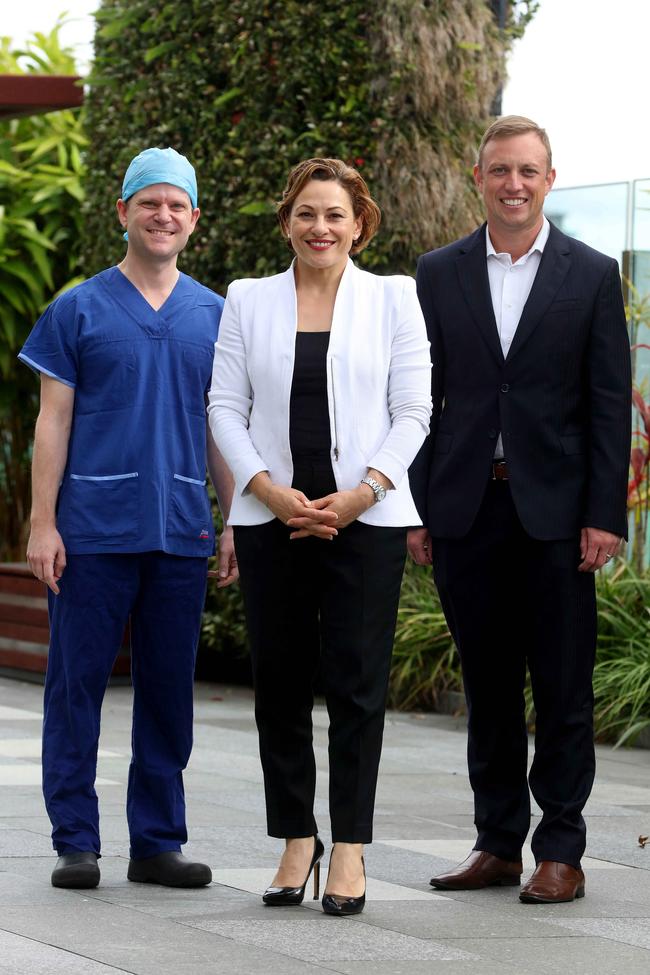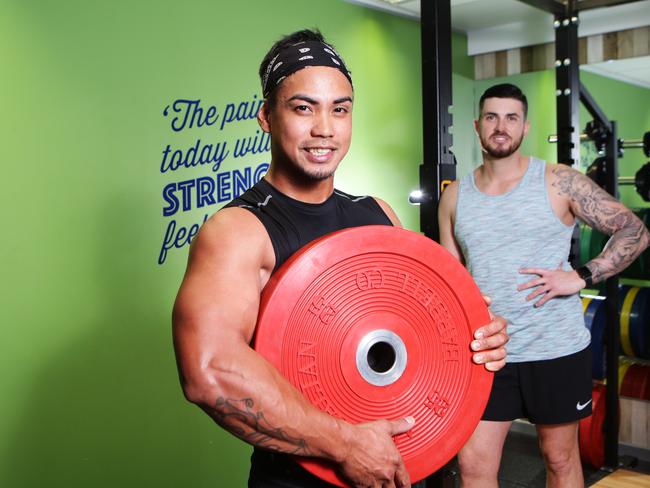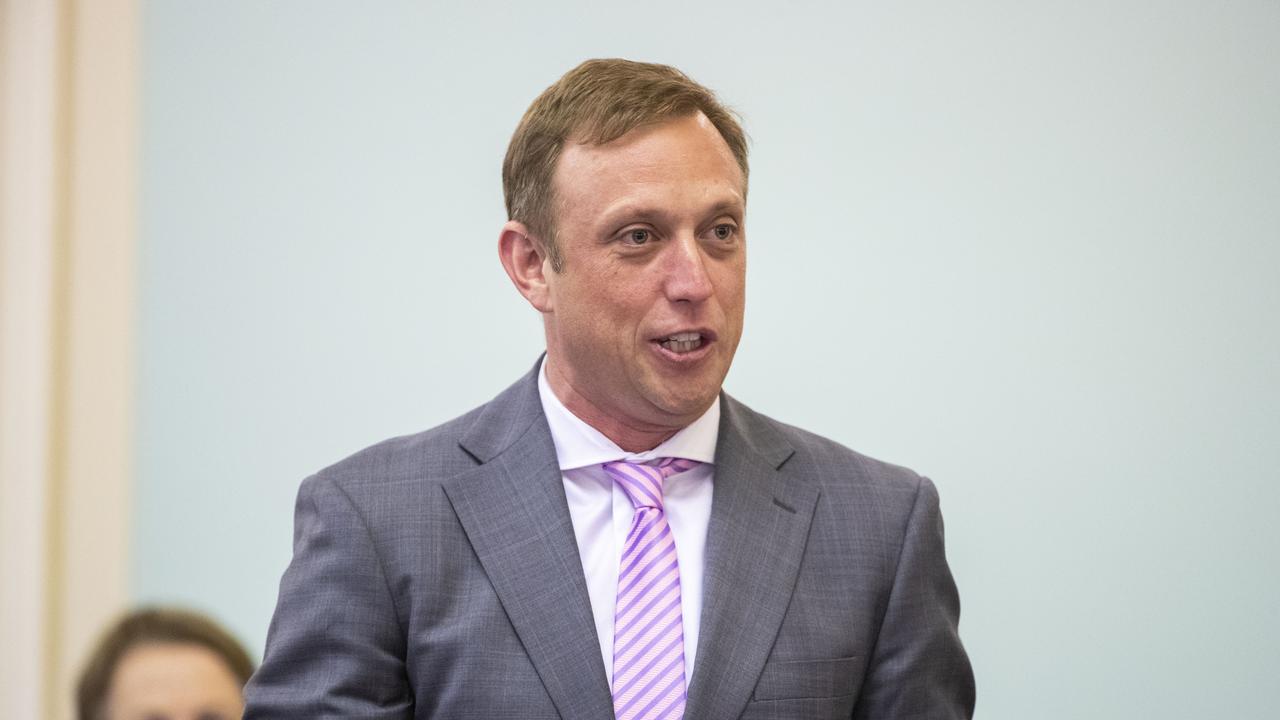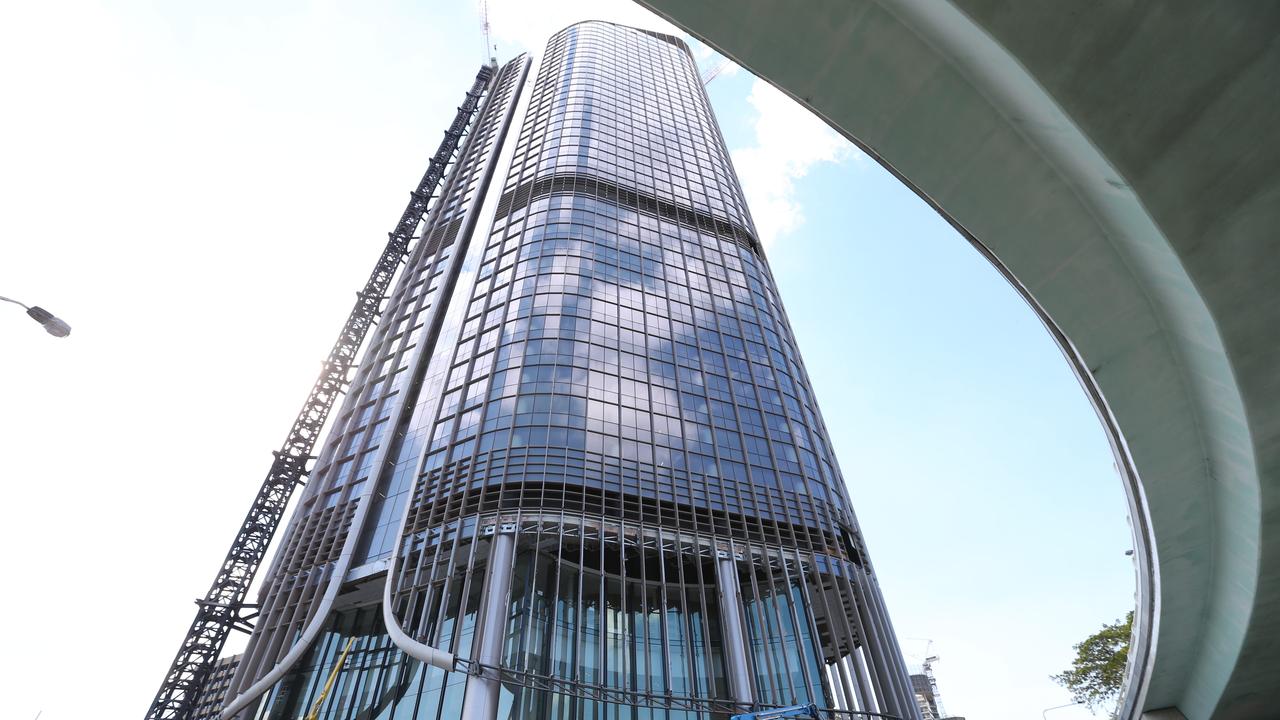Queensland Budget 2018: Health system faces obesity crisis
THE State Government has been forced to hire record numbers of paramedics, nurses and midwives because too many Queenslanders drink, smoke and are overweight, and it’s costing taxpayers millions.
QLD Politics
Don't miss out on the headlines from QLD Politics. Followed categories will be added to My News.
POOR lifestyle habits and an ageing population are fuelling an unprecedented blowout in Queensland’s health budget.
Health Minister Steven Miles says Queenslanders are eating, drinking and smoking too much, creating a chronic disease time bomb for the public hospital system.
The centrepiece of next week’s State Budget will be a record $18.3 billion spending on health – up $798.7 million from this year – and costs are set to soar in coming years, The Sunday Mail can reveal.
Pledging to address the “ever-growing demand for public health services across the state”, Dr Miles revealed hospital operating budgets would grow by 5.7 per cent next year – almost four times faster than the population.
“Queenslanders eat more, drink more and smoke more,” he said.
“And by 2030, we expect to have an extra 350,000 people aged over 75 living here.
“That puts pressure on demand.”
Queensland is the second most overweight state, with 30 per cent of the population classed as obese – equal with the Northern Territory and just behind Tasmania.

The extra health spending also takes into account forecasts of 1.7 per cent population growth, increased use of public hospitals by patients with private health insurance and general cost increases.
Queensland Health’s operating budget will swell to $17.3 billion in 2018-19 – $729.3 million more than the current financial year.
Another $985.5 million will be spent on capital works, including upgrades to Logan, Caboolture and Ipswich hospitals, which are struggling to meet patient demand.
Queensland’s health workforce will soar to 90,095 fulltime staff by June next year as the state hires an extra 3500 nurses and midwives to meet a Labor election promise.
The state has already employed an extra 2800 nurses and midwives including about 210 “nurse navigators” who treat complex health conditions.
Ambulance services will receive a 10 per cent increase in funding to about $800 million after a 6 per cent spike in triple-0 calls and a 7 per cent increase in hospital transports.
One hundred extra ambulance officers will be hired and 85 new vehicles rolled out with power stretchers included, to reduce strain on paramedics.
An extra $154 million will be poured into a plan for more specialists to see outpatients so the Government can keep its pledge to clear specialist waiting lists by 2020 after a 10 per cent surge in demand this year.
Another $106.4 million will be spent over four years on community mental health services and $10 million will be used to increase bed numbers for influenza patients.
Premier Annastacia Palaszczuk said the record health spending would meet the needs of Queenslanders by boosting the number of frontline staff and hospital services.
“I make no apologies for spending the biggest share of our Budget on health,” she said.
“Our most important job is caring for the sick.
“The State Budget will deliver on commitments we made to Queenslanders at the election and help us deliver the best possible health care.”
Treasurer Jackie Trad will deliver her first Budget on Tuesday.
It will include five tax increases including a waste levy that was not flagged before the election.
Debt will soar to $83 billion by 2020-21 to fund a $45 billion splurge on projects, including the Cross River Rail and upgrades to the Brisbane-to-Gold Coast section of the M1.
Ms Trad yesterday announced $160.8 million to duplicate the Sunshine Coast rail line between Beerburrum and Nambour.
The state is still demanding Canberra stump up 80 per cent of the total cost of the rail upgrade rather than the 50 per cent that was committed in the Federal Budget.

Young men top risk list
OVER a fifth of Queenslanders could end up on the porkier side – if they aren’t already – with new data flagging concerns for the health of younger men in particular.
New Queensland Health data has revealed males aged 18 to 30 are more likely to be at risk of becoming overweight due to unhealthy lifestyles, attitudes and behaviours.
Queensland Health advanced nutritionist Mathew Dick said two-thirds of Queensland adults were overweight or obese, with about 30 per cent failing to realise it.
“We all know that one person who seems to maintain their figure despite rarely exercising and indulging in unhealthy foods,” he said.
“From the outside they look healthy but internally they could have the same health concerns as someone who is overweight or obese.”
Mr Dick said the data revealed young men who were university educated and lived in metropolitan areas were most at risk.
Diabetes Queensland CEO Michelle Trute said bad food and a lack of exercise could induce chronic disease and potentially deadly health conditions like stroke, heart disease and type-2 diabetes.
Fitness is a priority for Christian Collado and Josh Davies.
Josh believes staying fit is empowering while Christian got into exercise five years ago after being bullied


